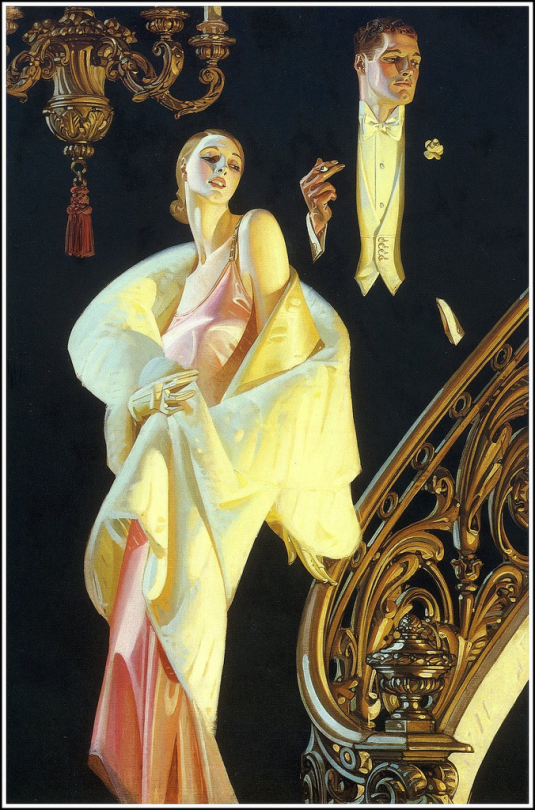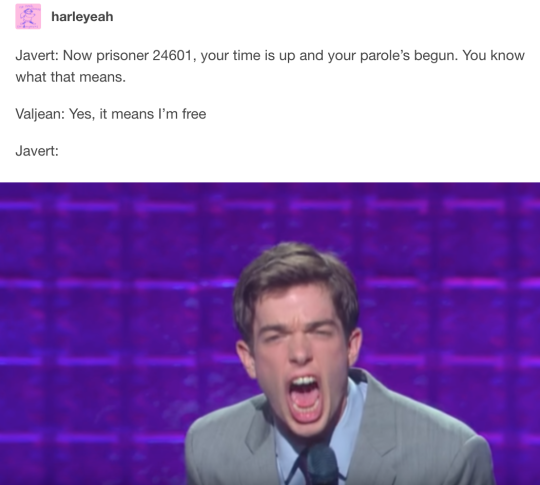18. she/her.just my thoughts while reading the brickstarted blog at cosette; book 2
Don't wanna be here? Send us removal request.
Text
I’ve been thinking a lot about the character of the blonde popular bitch in teen movies. There are a lot of examples:




Regina George (Mean Girls), Sharpay Evans (High School Musical), Heather Chandler (Heathers), and Cher Horowitz (Clueless) just to make a few.
What is interesting is all of their characters are defined by three primary characteristics: being physically attractive, being ultra-feminine, and having ambition. Now what’s interesting is the first two characteristics are things that society likes in women, so in a typical story one would expect these characters to be treated as heros or at least love interests. But instead ¾ of these characters are either primary or secondary villains. Cher is the exception, being the protagonist of her movie, but many of her actions are vilified by the script so despite being the protagonist, it isn’t until the end that she is treated like a hero.
Why is this character type villainized?
The answer is that these characters are women who use the things that society likes in women (femininity, beauty) not for men, but for their own personal use. This goes back to the aforementioned ambition. These characters crave power, and are willing to work for it, more specifically, they are willing to use their ~feminine wiles~ to get it. By having this ultra masculine character trait, these characters are seen as villains when they perform simple acts like caring about their appearance, or being flirtatious. Traits like this, ambition, flirtation and even vanity are praised in male characters.
Many of the actions and personalities these women do/have are strikingly similar to many male anti heroes in action movies.




They are arrogant, clever, manipulative, self-aggrandizing, just like characters like Tony Stark, Loki, Han Solo and Deadpool. But whereas these anti heroes become lovable scoundrels with hearts of gold, these characters become the villains of their tales because they are teenage girls.
To me what this says is audiences and writers are fine with all the traits associated with ambition, they just aren’t fine when it’s associated with femininity. Because an ambitious clever man is a scoundrel, but an ambitious woman is a bitch.
As a little girl constantly seeing these characters portrayed as evil made me develop a really negative image of femininity. I wanted to think I was superior to other girls because I feel better presenting pretty masculine. I was really misogynistic to a lot of girls because of my preconceived notions about femininity equating to shallowness and bad intentions. I know there are a lot of gay/gnc girls that like me had similar misogynistic hang ups because of gender non conformity and that really sucks!
As such I think it’s really cool when movies subvert the blonde bitch trope. To some extent, Clueless did this, but I think a better example is Legally Blonde. Elle Woods is clearly ambitious and hard working, but she’s also a feminine pretty blonde woman. And she is absolutely the hero of her story, and she is able to succeed due to a combination of her femininity and her ambition without having to compromise either!
What, like it’s hard?

Allow women to be feminine and ambitious and written like heros!
26K notes
·
View notes
Text
there are facts about les mis ignored by all of you
• javert is stupid. he feels pain when he need to concentrate and think about something which is not connected to his work. hugo literally said it in the second volume when javert realised that he had fucked about valjean.
• about one third (i remember joly, bossuet and grantaire ofc) of les amis were plastered before barricades. that's it. that is the fact.
• combeferre has a medical education so joly is not the only doctor
you can continue the list
421 notes
·
View notes
Text
i hate this dystopia we’re living in that superheroes in movies tend to b billionaires and the villains are the working people that got fucked over by them
48K notes
·
View notes
Text
victor hugo, in the middle of a plot point: hold on. you know what time it is?
[turns, reveals the back of his frock coat embroidered with “TIME FOR VICTOR’S OPINION”]
11K notes
·
View notes
Text
DRINK WITH ME 🍾🍻🍺🍸🥂🍹🍷 TO DAYS ☀️🌤GONE BY 👋🏻👋🏻 SING WITH ME 🗣🎤 THE SONGS 🎼🎷 WE KNEW 🙅🏻♀️🙉 HERES TO PRETTY GIRLS 💁🏻♀️💃🏼 WHO WENT TO OUR HEADS 💀🤯 HERES TO WITTY GIRLS 👌🏻💋 WHO WENT TO OUR BEDS 👅👀🛏 HERES TO THEM 🎊🎉 AND HERES TO YOU 👊🏻🙌🏻
539 notes
·
View notes
Text
the brick...a thicc book...the bricc, if you will
1K notes
·
View notes
Text
this image by j.c. leyendecker is the absolute epitome of wlw/mlm solidarity

look at the two of them. dressed to the nines. silks from france and cotton from egypt. chanel on them both. they’re at a party neither of them was invited to, but so damn good looking that no one in their right mind would turn them away at the door. the woman - titties free under that dress, scoping out women in salacious flapper dresses in gloves created from 100,000 insects’ life work. the man - smoking a cigarette he took out from the mouth of one of the millionaires at the party, saying nothing but giving him a slow smile and a wink. the flower in his lapel is fake. dying plants in your clothing is such a hideous fashion. the both of them haven’t spoken to anyone there, though everyone has tried. they stand on the stairs staring at the heterosexual proles gathered below them together, and the two of them wonder if those fools realize that they’re outclassed, that in every way, they’ve been outdone. they leave early with a bottle of champagne in each fist, and no one stops them.
119K notes
·
View notes
Text
“A buddy of mine saw Victor Hugo take his shirt off in the shower and he said that Victor Hugo had an eight-pack, that Victor Hugo was shredded.”
—a mysterious gentleman with a huge forehead wearing one of those goofy glasses and nose disguises
397 notes
·
View notes
Photo

Gentlemen, my father always detested me because I could not understand mathematics. I understand only love and liberty.
3K notes
·
View notes
Text
the Real question: which les mis character do you project onto
1K notes
·
View notes
Text
Neoclassicism in Les Miserable; or, Why Grantaire and Enjolras Were Probably Banging
I thought the Grantaire/Enjolras shipping was something for the hell of it. Not really based in reality, but it kinda fits, it’s fun, shipping is fun, no one was harmed in the making of this ship, Victor Hugo might be turning in his grave but hell he’s dead, la de da.
Nope, Victor Hugo actually compares Grantaire to Hephaestion, Patroclus, Nisus, Pollux, Eudamidas, and Pechmeja. Let’s look at these people in history for a moment. Their names all appear in partnership with another person, with the exception of Eudamidas and Pechmeja. If you don’t care about them, skip the next paragraph.
I researched Eudamidas and Pechmeja, but couldn’t find any trace of their partners… Eudamidas turns up vague mentions of a brother, but he was a pretty obscure person in Lacedemonian history. He shows up in a few things passingly. Pechmeja, full name I think Ange Pechmeja, might have been a poet, but all pages found on him were in French. Which I do not speak, read, or write.)
So there’s these different kinds of relationships in Greek culture that basically throw out the whole “you can be friends or romantic partners and THAT IS IT” thing that the Western world so loves to perpetuate (I’m not really a fan). Very briefly, when you say “Greek Love”, it refers to pederasty, involving the “active” lover, the erastes, and the eromenos/pais, the “boy”, which Wikipedia tells me is an affectionate name, not actually referring to age. No, it isn’t pedophilia, that’s a different, modern term. My sources involve Wikipedia and various classes, so make of it what you will). Suffice to say, the general (grumbled) consensus is that oftentimes these relationships were romantic, close, and often sexual in nature. It wasn’t really “gay” as we now know the identity, but it was a same-sex relationship. It didn’t exclude them from sleeping with women, either. Sexual identity was very different.
Anyways.
Patroclus and Achilles were one such pair. Acknowledged by Plato and Aeschylus to be lovers, their status is of course, still in limbo, as Medieval Christianity erased any sense of homoeroticism, while Shakespeare embraced it in Troilus and Cressida. The problem with all these relationships being called such is that centuries of various cultures and historians glorifying or condemning homosexual relationships cloud things quite a bit. All I can really say with certainty is that some historians believe they were more than Good Friends.
Hephaestion and Alexander the Great were one of these pairs. Look them up. There’s about 8 primary sources in the entire world regarding Alexander, possibly less. Not a ton of reading. They were never acknowledged as lovers in the primary sources, however, they did compare themselves to Patroclus and Achilles, who at the time, were believed to be in a relationship, see above paragraph.
Nisus and Euryalus were yet another pair, in Virgil’s Aeneid. Their love is acknowledged by Virgil as following the Greek Love pattern of relationships, and is called “pius”, or honorable.
And Pollux and Castor were brothers. They don’t particularly fit this theory, but the implication is that Grantaire and Enjolras were very close, I believe.. They were twins.
The original quote is referring to Grantaire,
“There are men who seem born to be the opposite, the reverse, the counterpart. They are Pollux, Patroclus, Nisus, Eudamidas, Hephaestion, Pechmeja. They live only upon condition of leaning on another; their names are continuations, and are only written preceded by the conjunction and; their existence is not their own; it is the other side of a destiny which is not theirs. Grantaire was one of these men. He was the reverse of Enjolras.“
- Victor Hugo, Les Miserable, pg. 651
So basically Victor Hugo said that these two were intimately close, possibly banging, in the Greek Love sort of way.
It is also worth mentioning that Napoleon Bonaparte’s rule coincides with the neoclassicist movement in France- that is, the idolization of Greco-Roman culture. For example, the Josephine, or empire, waist on womens dresses was to create a Greco-Roman statuesque silhouette. Les Amis are all, of course, definitely not loyalists (as this is what caused Marius to fall out with his grandfather, among other things), and Marius himself turns into a fervent supporter of Bonaparte (despite being several years too late to do anything about it).
In conclusion, they were probably banging, or at least very emotionally intimate, and Victor Hugo implies as much. The End.
925 notes
·
View notes
































